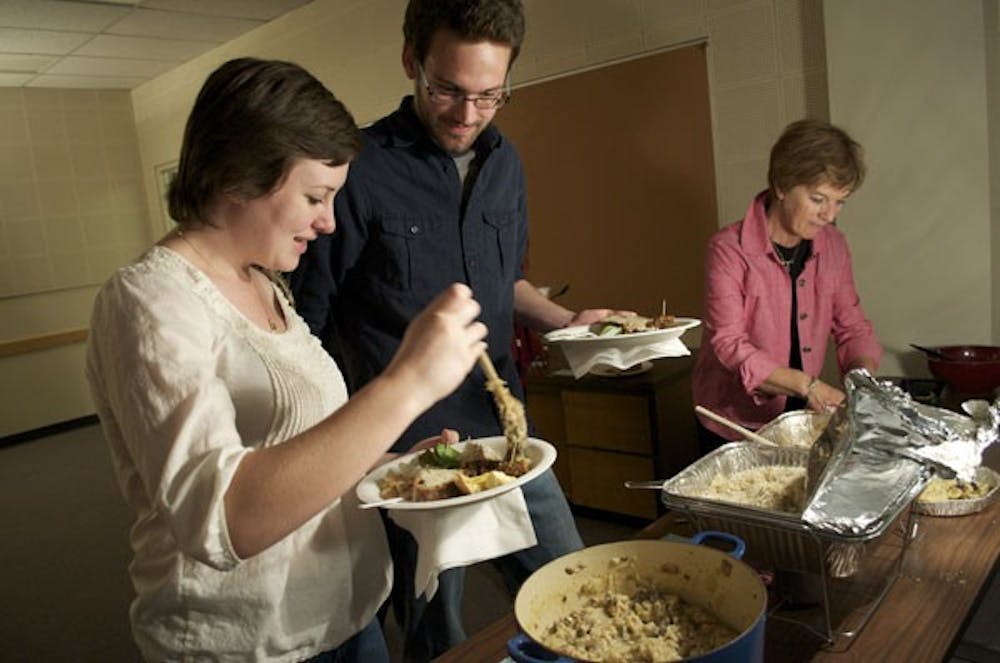Delicious scents filled the G. Homer Durham Language and Literature building on the Tempe campus Thursday night as students and faculty took a trip back to medieval times to feast while enjoying minstrel music in a candlelit room.The potluck-style feast was hosted by the Department of English and the Arizona Center for Medieval and Renaissance Studies.
This event drew about 20 people and was one of six events in the second annual Chaucer Celebration, which honors the life and works of famous narrative poet Geoffrey Chaucer.
Richard Newhauser, an English professor in charge of the event, said Chaucer is one of the best English language narrative poets.
“He is looked up to by people all over the world who write in English,” he said.
On Thursday, the celebration kicked off with a play, followed by a concert and a film festival. Today, the festivities will come to an end with a roundtable and another short film.
A Chaucer special collections exhibit is on display at Hayden Library on the Tempe campus until April 5.
“It is very exciting to host these events because they celebrate the life and times of one of the best narrative poets to write in English and extend education beyond the limits of the classroom, making the medieval a living, sensory experience,” Newhauser said.
Chaucer, author of “The Canterbury Tales,” was born in 1342 and died in 1400.
“Feasts are ways to bring people together in a way that emphasizes the sensory aspects of medieval life that goes beyond simply book learning,” Newhauser said.
Senior journalism student Ashley Lange attended the feast and was excited to learn about the medieval methods of cooking and eating.
“I love to cook, so I was hoping to learn a bit about ingredients and techniques that we’re so used to now that would have been unthinkable back then,” she said. “Turns out we take a lot for granted.”
Lange said she was excited to see which other participants cooked and if medieval food was as “tasty” as it smelled.
Rosalynn Voaden, an English professor who helped run the event, said it was a great place to come and eat medieval food.
The feast also was an attempt to disprove the misconception that medieval people just gnawed on crusts of bread and ripped meat off bones that they then tossed to the dogs, said Kristen LaRue a spokeswoman for the celebration.
Contrary to popular belief, medieval food is typically sophisticated, unusual and delicious, LaRue said.
The feast featured foods such as mushroom pie, bawlmanger (rice and chicken dish cooked in almond milk), makerouns (noodles and cheese) and tart de bry (cheese and egg tart).
Reach the reporter at beth.easterbrook@asu.edu





